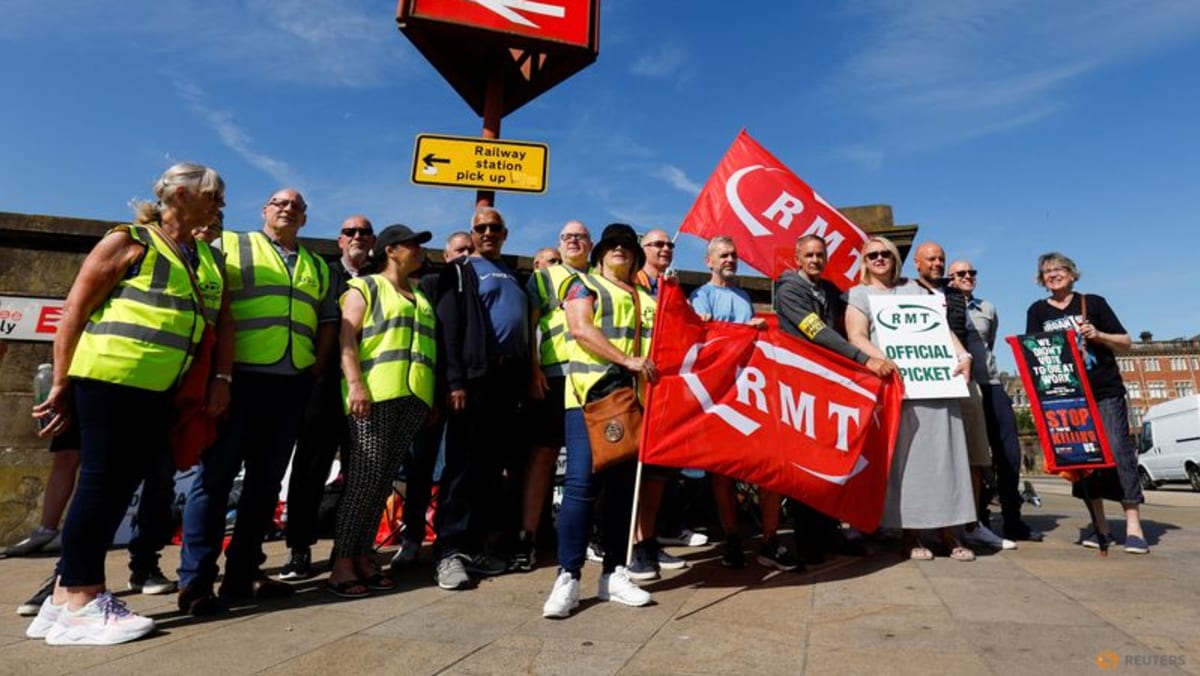
A survey by pollsters YouGov found public opinion divided, with 37 per cent supportive of the action and 45 per cent opposed.
Leo Rudolph, a 36-year-old lawyer who walked to work, said he would become more disgruntled the longer the dispute holds.
"This isn't going to be an isolated occurrence, right?" he said.
INFLATION FEVER
Inflation has soared across Europe on the back of a major rise in energy costs and Britain is not alone in facing strikes.
Action over the cost of living in Belgium caused disruption at Brussels Airport on Monday, while Germany's most powerful union is pushing for large wage increases and in France President Emmanuel Macron is facing unrest over pension reforms.
Britain's economy initially rebounded strongly from the COVID-19 pandemic but a combination of labour shortages, supply chain disruption, inflation and post-Brexit trade problems has prompted warnings of a recession.
The government says it is supporting millions of the poorest households but warns that above-inflation pay rises would damage the economy and prolong the problem.
Retail intelligence company Springboard said footfall in British high streets was down 8.5 per cent compared to last week, and down 27 per cent in central London.
Britain's railways were effectively nationalised in the pandemic, with train operating companies paid a fixed fee to run services, while the tracks and infrastructure are managed by state-owned Network Rail.
The RMT seeks a pay rise of at least 7 per cent for its members, but it has said Network Rail offered 2 per cent, with another 1 per cent linked to industry reforms the union opposes. The government, criticised for not being involved in the talks, says unions must resolve it directly with employers.
The BBC reported that further talks were due on Wednesday but even an agreement would not prevent further disruption on Thursday.
The outbreak of industrial action has drawn comparison with the 1970s, when Britain faced widespread labour strikes that culminated in the 1978-79 "winter of discontent".
The government says it will now change the law quickly to make train operators provide a minimum service on strike days, and allow employers to hire temporary staff.
The strikes come as travellers at British airports experience chaotic delays and last-minute cancellations due to staff shortages, while the health service is teetering under the pressure of long waiting lists built up during the pandemic.
https://news.google.com/__i/rss/rd/articles/CBMieGh0dHBzOi8vd3d3LmNoYW5uZWxuZXdzYXNpYS5jb20vd29ybGQvdWtzLWJpZ2dlc3QtcmFpbC1zdHJpa2UtMzAteWVhcnMtZGlzcnVwdHMtdHJhdmVsLXBtLWpvaG5zb24tdm93cy1zdGF5LWZpcm0tMjc2MDA1NtIBAA?oc=5
2022-06-21 18:46:18Z
1471253390
Tidak ada komentar:
Posting Komentar